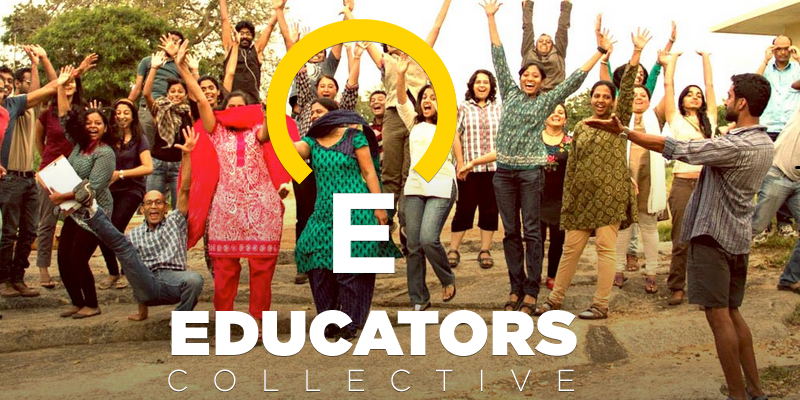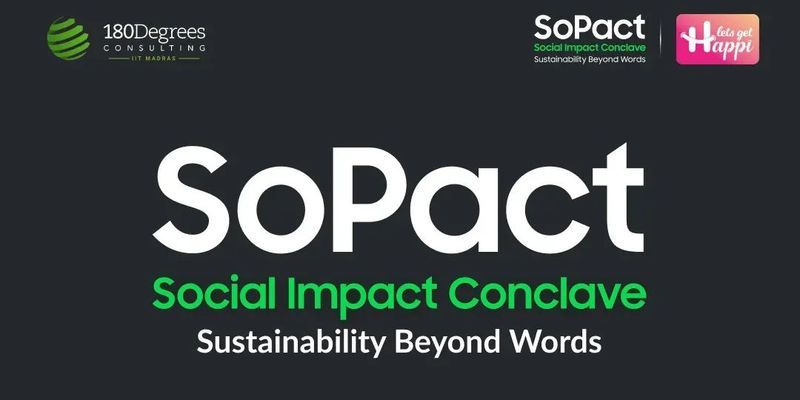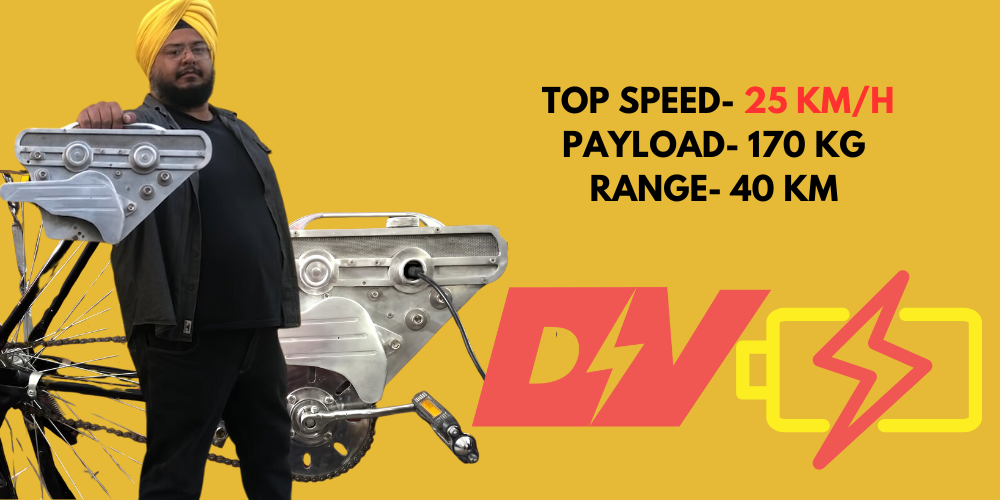How 200 educators are bringing experiential learning to Middle India
Across India, experiential education companies have marched into the education sector. There’s an increasing demand for educators and trainers. The educators part of this process remain in the shadows, oblivious of the strength of their peers.
FUN(N) Saturday, a social experiment started in March 2013, eventually lead to the Educators Collective in Bangalore. A learning platform that runs on gift culture, it comprises of 200 highly passionate and skilled individuals from diverse backgrounds working to bring experiential education to the forefront.
A for-profit social enterprise, Educators Collective hopes to build a community of experiential educators in India especially for the benefit of low and middle income groups across both small towns and cities.
YourStory interviewed Shalini Menon, founder of Educators Collective, to find out more about her journey to bring Educators Collective to fruition.
With just Rs 40,000 to boot, Educators Collective could barely cover the cost of its website and laptop when it began. Clueless about how they were going to loop in their first customer, their journey started with immense trepidation and anxiety. But, 15 days later, they landed their first client.
‘Our programs are customised to meet each client’s need and covers diverse themes of leadership, life skills development, conflict resolution, community building, environmental and sustainability initiatives.’
Educators Collective’s affordable customised curricula use diverse mediums like puppetry, theatre, inclusive gaming, service-based learning and wilderness-based programmes for clients in the development and educational sectors.

They've facilitated a youth conference UDAAN (Youth in Solidarity for Climate Change), an initiative by 350.org. In their continued endeavour to provide high-quality learning tools for the lower-to-middle income groups in India, Educators Collective is in the process of organising Bangalore’s first Startup Education event from 29th to 31st August.
‘Our strength comes from our team and an advisory board that blends the passion for education with other aspects of corporate social responsibility, public relations and media.’
The problem with experiential education is the lack of focus on skill-building and community-building platforms in India. Educators Collective hopes to be a positive pervasive force in Indian education whether it is a small government school or a neighbourhood CBSE school at a community level.
‘We have connected over 200 classroom teachers, experiential educators and artists in Bangalore, becoming India’s only learning platform that is organised each month on gift culture. We are driven by giving each member a voice and face through our work, creating financially rewarding opportunities for them. We want parents to be wrong when they say “theatre, adventure or art is not a career."'
Menon feels that the reason Educators Collective is a for-profit organisation is simply due to the fact that if the work is not financially sustainable and fulfilling, there is a serious danger of passion burning out.
‘Our formats allow experiential educators and facilitators to find a high level of ownership as they design and deliver programs, taking a larger percentage of total revenue as compared to a low Rs. 2000 per day. Since the inception, we have engaged nearly 20 educators in our projects on a revenue sharing basis.’

Educators Collective’s journey began with just 3 people and 6 members that formed the advisory board playing a supportive and strategic role. The FUN(N) Saturday initiative over time has grown to include 220 members.
‘We're growing organically, largely focusing on building a market and meeting our potential customers every day. We all work virtually and connect over Skype and Google Hangouts, with monthly meetings over chai. We hope to take advantage of co-working spaces soon.’
One of the greatest accomplishments Menon mentions was the opportunity to present their work at the ‘Google for Educators & INK Conference’, after which they landed a fellowship for the 2014 Stanford Ignite program (Stanford Graduate School of Business).
‘When you take the first step, the universe conspires – well, we actually experience it every day.’
With regards to Educators Collective’s start-up initiative, Menon says, ‘We definitely want to put together the best Startup Education Event for Bangalore! We are hoping to bring together 120 participants from diverse backgrounds and have managed to bring in eminent names on the panel so far.
‘The FUN(N) Saturday initiative is an ongoing, monthly initiative. We are committed to keep that going for as long as we exist connecting teachers, artists and experiential educators together.’
To Menon and the people at Educators Collective, a deep sense of community powers their passion for this initiative.
‘We have so many youth workers, teachers, adventure educators and artists in the community who inspire us with their stories and passion for what they do.’
One of the biggest challenges Educators Collective faces is the very industry it works in.
‘As a young bootstrapped organisation it’s easy to get intimidated by the number of players in the market, their financial muscle or size of team.
Our intent is to find partnerships and collaborations with people and organisation. Conversations, negotiations and power politics can be draining and can cause one to lose focus. It’s important to remind oneself that one carves one’s destiny through hard work, determination and a vision. No one is powerful enough to break you, unless you allow yourself to break!
When everything goes wrong, we just go out and play!’
Their journey has consisted of both the fruit of success and the risk of failure, but always an unbridled sense of positivity and passion.
‘Fail fast and fail often has become a cool thing to say these days! But no one wants to fail; no one sets out to fail. The thought of failure, yet finding the courage to take the first step was our greatest risk… and our greatest blessing!’











